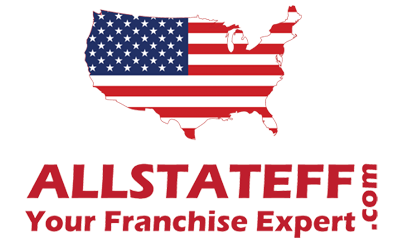Talk on the Street
Talk on the Street
Press Releases & News Articles
ALLSTATEFF Offers Advice on Franchise Financing
Franchise expert Derek Cafferata of ALLSTATEFF shares valuable advice on securing the best franchise financing for that new business venture.
A franchise is a popular option for many people looking to become business owners. Buying a franchise allows you to own and run your own small business while having the support and structure of a larger, proven successful corporation.
While the franchise business model is one of the most popular and successful models in the world, it requires some solid cash flow and capital to buy into and get off the ground.
Franchising expert Derek Cafferata, CEO and President of All State Franchise Finders (ALLSTATEFF) has over 30 years’ experience in the franchising industry, both in the U.S. and around the world. He is well aware of the importance of, firstly, identifying if a potential franchisee is in the financial position to buy into a franchise and, secondly, the equally important point of sourcing the right type of franchise financing for the potential franchise owner.
Here Derek shares some helpful tips and advice for anyone who wants to become a franchise owner and is looking at how to go about financing a franchise.
Typical Franchise Costs to Consider
You have looked at different franchise businesses and weighed up the fact that you believe franchising is for you. Now you need to consider what costs are actually involved in buying a franchise.
“While paying the franchise fee is probably the largest cost, it certainly isn’t the only cost when buying into a franchise,” says Derek. “You need to consider inventory costs, royalty fees, advertising costs and working capital to name a few.”
Franchise fees range significantly depending on the franchise. According to Derek, the up-front franchise fee can be anywhere from tens of thousands of dollars up to hundreds of thousands of dollars. Additional costs can also add up quickly and they may include costs for purchasing or leasing equipment, land, buildings, signage, fixtures, opening and promotional costs, even administrative costs.
In his experience, Derek believes it is far better for a potential franchisee to be fully aware of actual and potential costs before he or she looks at sourcing any franchise financing.
Determine Your Position and Net Worth
Before you rush headlong into finding funding for your new business venture, determine your financial position and net worth. As a general rule, invest up to 75 percent of your cash reserves.
“You need to have some available cash should things not go as you planned or some unexpected costs arise,” said Derek. “In business, you quickly learn that you can’t control everything, which is why you need to be able to ride out and get through those unexpected periods in the life of a business, especially a startup.”
Approaching a lender with a clear breakdown of your assets and liabilities, net worth, income, a business plan, good credit history and realistic projections will help you secure the best financing options for you.
Franchisor Financing and Commercial Lending
“There are two main options when looking to secure franchise financing,” says Derek. “Franchisor financing and commercial lending are where most people go to first.”
According to Derek, one of the first places a potential franchisee should look is to franchisor financing. For a suitable franchisee, a franchisor will usually be willing to help with financing franchise fees, as well as other costs like equipment and operational costs. Franchisor financing is offered in a wide range of ways, from offering a percentage of either the up-front franchise fee or the overall costs. Some franchisor financing may be offered on no principle or simple interest terms, or with a future balloon payment. Other franchisors offer no lending repayments for the first 12 months.
The other option aside from franchisor financing is going to a commercial bank or lender. Commercial lenders may require more information about the business, its past success and projected income and performance into the future. A commercial bank or lender will also closely scrutinize your personal financial history and current position.
Franchisor financing and commercial lending are two very common methods of securing funding for a new franchise. What may suit one hopeful franchisee may not suit another.
Other Franchise Financing Options
Should franchisor financing and commercial lending not suit, there are other options available to a potential franchisee.
A business partner can make for the ideal finance solution for the excited, driven new business owner who lacks the capital. “Silent partners who are keen to put their money into a solid investment are not uncommon,” says Derek.
Family members and friends are another option, especially for partial financing, as well as using your home equity or retirement fund.
Other options include utilizing the Small Business Administration (SBA) who will often guarantee up to 80 percent of a loan, making you look more attractive to a commercial bank or lender.
“Financing options tailored to specific groups are another option, particularly through the International Franchise Association (IFA),” says Derek. “There’s the VetFran Program for veterans, as well as the IFA’s Diversity Institute for minority groups.”
ALLSTATEFF Here to Help
ALLSTATEFF are experts in helping potential franchisees through the complex process of buying a franchise, from franchise selection through to franchise financing and startup. Derek and his team are dedicated to offering sound advice and hands-on assistance to ensure you make the best decision for your personal and financial needs and goals. For more information about franchise financing, call All State Franchise Finders on 18-00-544-2161 or visit allstateff.com today. All State Franchise Finders – Your Franchise Experts!









